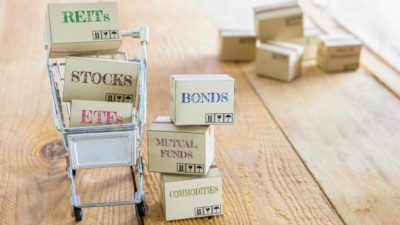The Canada Emergency Response Benefit (CERB) continues to change and evolve. And with that, I imagine that some eligible Canadians who’ve been collecting such Canada Revenue Agency (CRA) payments are a bit confused, especially if they haven’t been keeping up with the latest.
Waves of vulnerable Canadians are going to see their CERB lifelines come to an end over the coming months. For those who’ve yet to get an opportunity to get back at it, the future is uncertain and scary for many families that may not be able to make ends meet.
CRA payment extension or not, the financial hit brought forth by the coronavirus is palpable
There’s a chance that CERB payments could be extended further, but the rules of eligibility are due to change, as new rules look to be written up on the fly. As new legislation passes, there’s a chance that many Canadians may suddenly find themselves ineligible for CERB or subject to potentially stiff consequences by the CRA.
A CERB extension until 2021 may be necessary to protect the most vulnerable Canadians, but the bill is reported set to cost $57 billion, according to the Parliamentary Budget Officer, and is over double that of initial estimates.
If we’re hit with a second wave of COVID-19 outbreaks in the latter part of the year, things could get nasty. As the economy continues reopening in phases over the summer months, CRA payment recipients may soon be obliged to return to work as soon as they’re given a “reasonable” opportunity to do so.
Proposed legislation that CERB users need to know about
Under the new proposed legislation, Canadians eligible for the CRA’s CERB could become non-eligible should they opt to continue receiving relief benefits by choosing not to return to work when it’s “reasonable to do so” and the employer “asks them to return,” if they don’t “resume self-employment when reasonable,” or “decline a reasonable job offer.”
The word reasonable comes with some degree of discretion, but the message from the Feds is loud and clear. If you would rather receive CERB than return to work when it’s safe, the CRA wants their money back, and you’ll have to make your case for why you thought it was “unreasonable.”
As such, CERB recipients unwilling to head back to work could fall into some hot water over the coming months, as the CRA “aggressively” looks to crack down on non-eligible applications and “fraudulent” claims. If in doubt, ask for help, search for answers, but please don’t panic, as the federal government has noted that they won’t imprison those who make “honest mistakes” should the new, stiff CERB rules pass. With all the uncertainty and continuing changes to CRA payment eligibility, there will surely be a fair share of such mistakes.
If you have some cash in your Tax-Free Savings Account, you can supplement your tax-free monthly income with specialty-income ETFs such as the BMO High Dividend Covered Call Canadian Equity ETF (TSX:ZWC), which sports a healthy 8.5% yield at the time of writing. Rotating funds into high dividends or distributions is a great way to give yourself an income boost whether or not you’re eligible for those changing CERB requirements.
Foolish takeaway
Change is coming with CERB. If in doubt about your eligibility, call the CRA or visit their website to ensure you won’t be at risk of skating offside with the CERB and your personal situation, whatever that may be. Whether or not new CERB rules are passed, the Fed’s message is loud and clear: they want people to get off the CERB and return to work.








